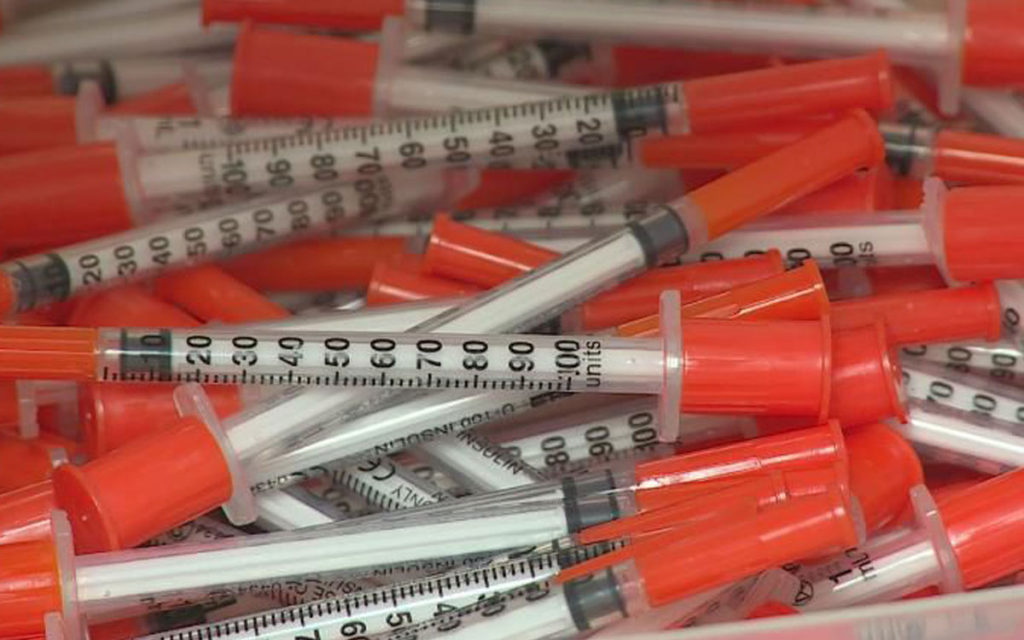
Tomorrow marks the start of Overdose Awareness Week in Ontario, and Glenn Walker hopes residents will understand the serious impact of the opioid crisis in our community. The executive director of Street Works says Niagara is facing one of the highest rates of drug overdoses in Ontario and it’s not going away quickly. “We’ve had a dramatic increase in the need for services, supplies and training over the past 4 years,” says Walker. He points to the 1.6 million needles distributed in Niagara last year. “And we had a return of between 70 and 80 percent of the used needles,” he says, “which is one of the highest return rates in the province.” Over 460 Naloxone kits were distributed through the program.
Statistics from Niagara Regional Public Health reveal 40 deaths, 297 opioid poisoning emergency department visits and 82 hospitalizations in 2016. Death data for 2017 is still considered to be preliminary.
“The goal of Street Works is to take down the barriers in accessing harm reduction supplies and services,” says Walker. Help starts from the office at 120 Queenston Street in St. Catharines and extends through their mobile delivery service, as well as through designated pharmacies across the region. Office hours run from Monday to Friday from 9 a.m. to 5 p.m., and mobile delivery is offered from 6 p.m. to 11 p.m., by calling 905-328-6715.
Niagara Approved as Overdose Prevention Site
By early summer, hours of operation will be expanded following good news received yesterday from Ontario’s Ministry of Health. Street Works has been approved as an Overdose Prevention Site and will operate seven days a week from the Queenston Street location. “We will be a temporary site initially for a six-month period,” Walker reveals, “but we will proceed with an application to become a permanent site.”
One of the goals for Overdose Prevention Week is to encourage an open dialogue. “Anyone can have an addiction . . . this is not just people living on the street,” Walker stresses. “Parents should be talking openly with their children . . . things need to be above board” he adds. “To save lives, people need to know where to turn and what to do.”
Walker believes that needle exchange programs provide an opportunity to develop a relationship with drug users. Stats verify that drug users are more likely to enter treatment when using “safe site” services.
Needle exchange programs are being credited with reducing the spread of bloodborne diseases like hepatitis C and H.I.V. that can be spread when needles are shared. A recent U.S. survey reveals that $10 million spent on needle exchanges might save more than $70 million in averted H.I.V. treatment costs alone. There are more than 300 access points across Ontario offering free harm reduction supplies.




















